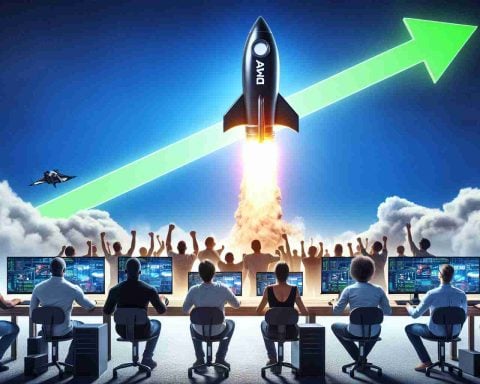Despite skepticism surrounding virtual reality, Meta is investing heavily in the technology’s potential. The company is dedicated to transforming the way we engage with digital environments, pouring immense resources into developing advanced VR concepts. A noteworthy advancement in their pipeline involves a promising new invention that could significantly enhance the user experience in VR.
Meta has filed a patent for an innovative glove designed to provide haptic feedback specifically to the user’s fingers. This groundbreaking device would not only emit vibrations, but also simulate realistic sensations associated with everyday actions, such as the pressure required to press buttons or the tactile feedback of a light switch. Through this enhancement, users immersed in virtual settings would enjoy a more authentic interaction, potentially serving as a persuasive factor for those still on the fence about VR adoption.
While such patents indicate Meta’s intentions, they don’t guarantee that products will reach the market immediately. Despite anticipating groundbreaking developments, including AI-driven augmented reality glasses expected to debut soon, the company must also address fundamental issues. Many consumers find current VR headsets cumbersome and uncomfortable, which could hinder mainstream acceptance.
Ultimately, the focus on ergonomic designs might prove to be even more pivotal than novel haptic technologies. While consumers eagerly await cutting-edge innovations, addressing comfort could pave the way for broader VR adoption in everyday life.
As the future of virtual reality (VR) unfolds, several key innovations and advancements are on the horizon, along with pertinent questions and challenges that need to be addressed.
Important Questions:
1. What role will artificial intelligence (AI) play in the evolution of VR?
AI has the potential to enhance VR experiences by enabling more realistic avatars, personalized content, and intelligent interactions. Companies are beginning to integrate AI to analyze user behavior and adapt experiences dynamically.
2. How will VR impact social interactions?
With the increasing shift towards virtual social spaces, questions about the emotional and psychological impacts of VR on relationships arise. Will it enhance or diminish real-world social skills and connections?
3. What are the potential health impacts of prolonged VR use?
Research is needed to better understand the implications of extended VR usage, including eye strain, motion sickness, and overall physical health outcomes.
Key Challenges and Controversies:
– Privacy Concerns: The collection of biometric data and personal information in VR environments raises significant privacy concerns. Users must be assured that their data is handled securely.
– Digital Divide: The high cost of VR technology can exacerbate existing inequalities in access to technology. Ensuring equitable access remains a significant challenge for widespread adoption.
– Content Regulation: As VR creates immersive experiences, the need for content regulation to prevent harmful or inappropriate content becomes increasingly vital. Balancing free expression with safety is a contentious issue.
Advantages of Virtual Reality:
– Immersive Learning: VR offers unique educational experiences, allowing users to engage in scenarios that enhance learning, such as medical simulations or historical reenactments.
– Enhanced Entertainment: The gaming and entertainment industries benefit significantly from VR as it provides a new level of engagement and immersion, attracting more users and generating new forms of content.
– Therapeutic Uses: VR is being used in therapeutic settings, such as exposure therapy for PTSD or anxiety disorders, demonstrating its potential in mental health treatment.
Disadvantages of Virtual Reality:
– Cost Barriers: High-quality VR systems can be costly, making them inaccessible for a significant portion of the population.
– Motion Sickness: Many users experience discomfort, such as nausea or dizziness, when using VR systems, limiting the amount of time they can spend in virtual environments.
– Isolation Risks: Prolonged use of VR could lead to social isolation, as users may choose virtual interactions over real-world relationships.
To further explore the future of VR and related developments, consider visiting these main domains:
Meta
Oculus
Road to VR
VRScout
UploadVR























